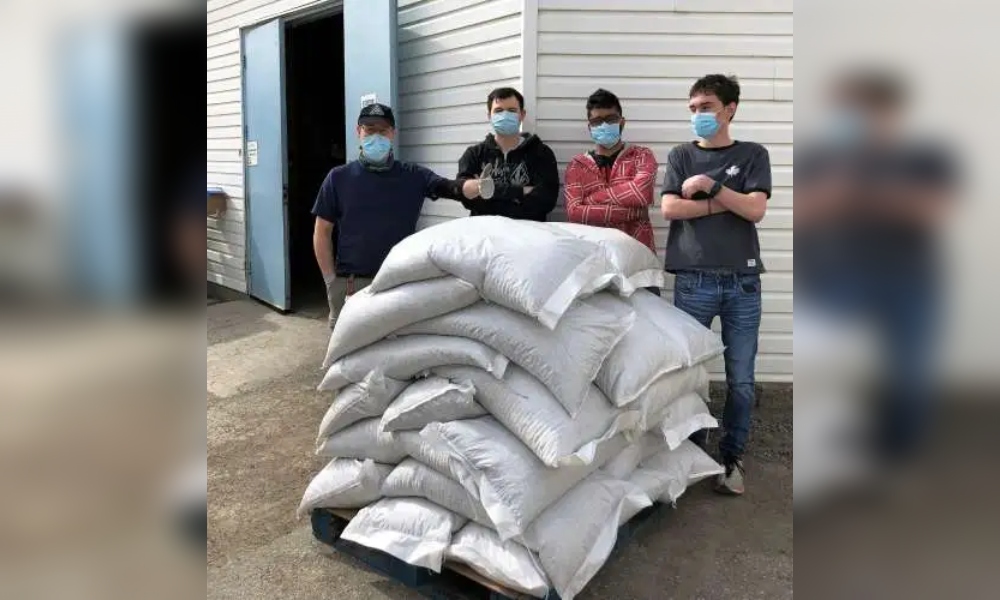After four years of growing beans for a study, a team of Guelph researchers is donating the 2,000-kilogram harvest to local food banks instead of composting the crops.

The research project out of the University of Guelph investigated the benefits of growing a mixture of bean varieties in one field instead of growing a single variety in one crop. It involved planting and harvesting thousands of bean plants in Woodstock and Elora.
However, the donation was a bit of a challenge to bring to fruition.
“The problem we ran into is we had no way to clean the harvested beans in order to make them suitable for human consumption,” said project leader, Dr. Peter Pauls.
He explained that 2,000 kilograms of beans is too small of an amount for commercial bean processors and it was difficult to find anyone willing to process their harvest.
Another issue is that most commercial bean cleaning equipment is designed to sift and polish only a single variety of beans at a time and the researchers had harvested several varieties such as kidney, navy, black and cranberry beans.

Pauls said he just happened to mention the problem to the head of a seed dealership called Crooked Creek Acres in Strathroy and the company offered to help.
“They cleaned and packaged all the beans for free, which was terrific,” said Pauls.
“They know there are many in our area currently facing food security problems because of the pandemic and didn’t want to see all those beans go into compost. So, it just all came together and we’re so grateful they were able to help.”
The university said more than 700 kilograms of beans were sent to the local non-profit The Seed, another 800 kilograms went to the Guelph Food Bank and the rest were delivered to campus hospitality services.
Kept dry, beans can last in storage for months.
As for the study itself, the university said researchers found multiple benefits of planting bean mixtures instead of a single variety.
“Those benefits included some higher yields, signs of greater biodiversity in the crop and potentially greater resiliency to environmental challenges,” the university said.
“They found that planting more than one variety of bean can provide a ‘buffering effect’ in case of crop stress, such as drought or flooding. If one variety perishes during the stress, the other can often survive and fill in the areas left by the more susceptible variety.”
The study’s findings were published last year in Frontiers in Sustainable Food Systems.
- Posters promoting ‘Steal From Loblaws Day’ are circulating. How did we get here?
- Canadian food banks are on the brink: ‘This is not a sustainable situation’
- Video shows Ontario police sharing Trudeau’s location with protester, investigation launched
- Solar eclipse eye damage: More than 160 cases reported in Ontario, Quebec




Comments